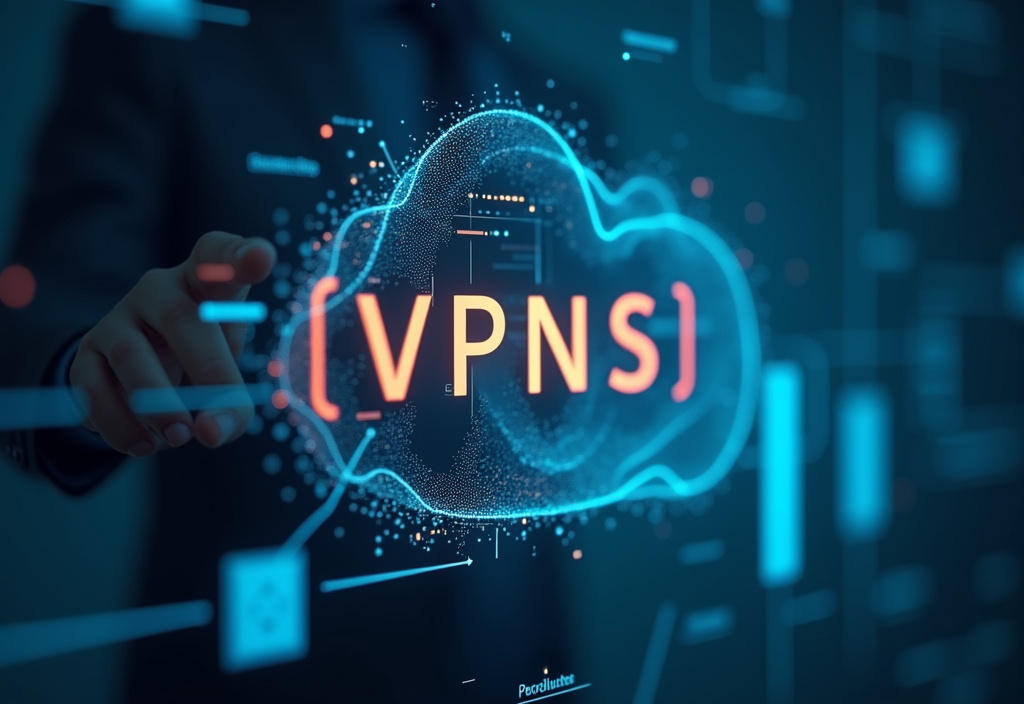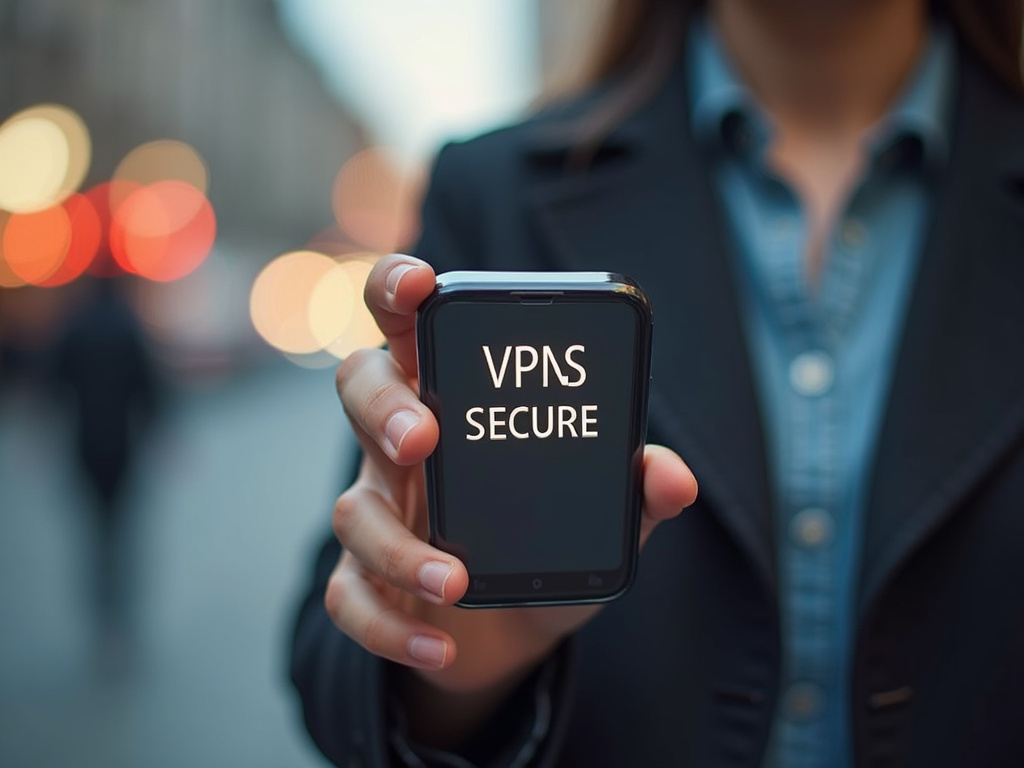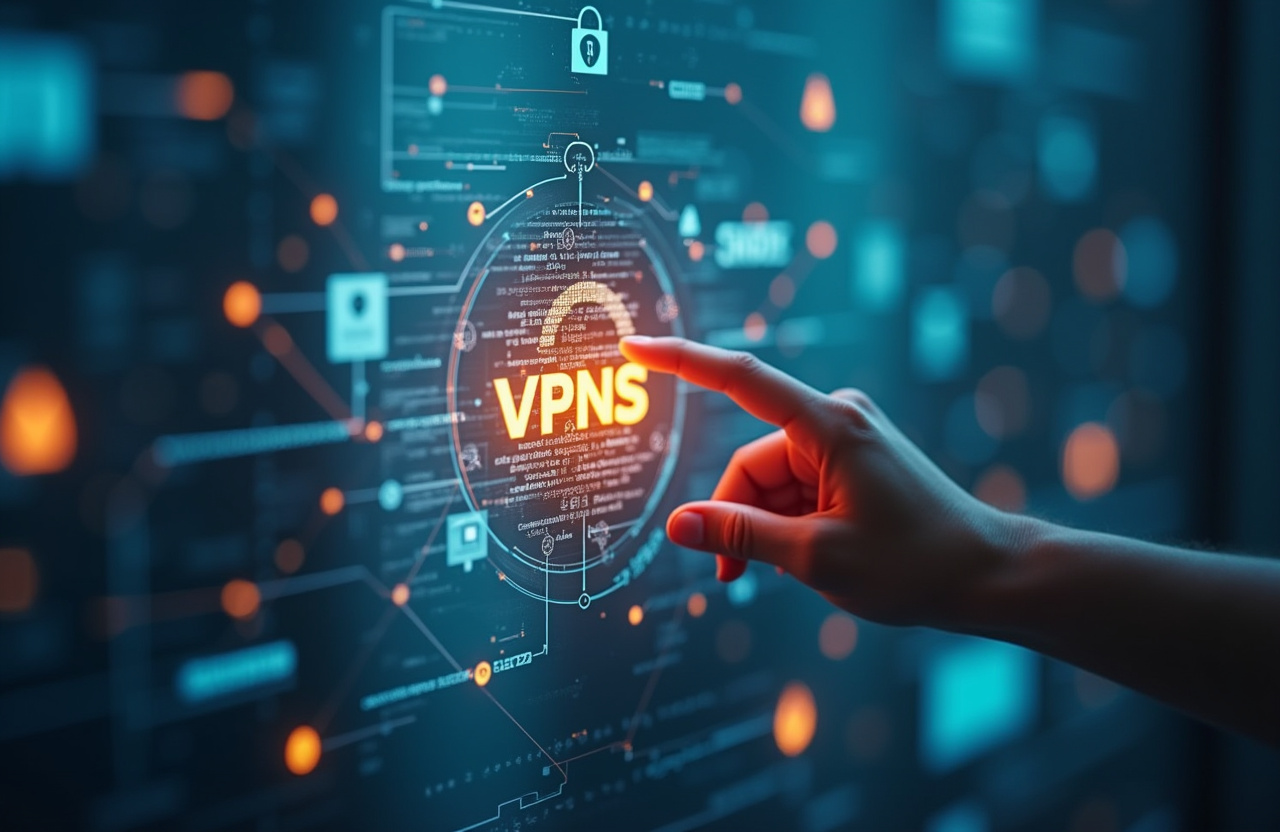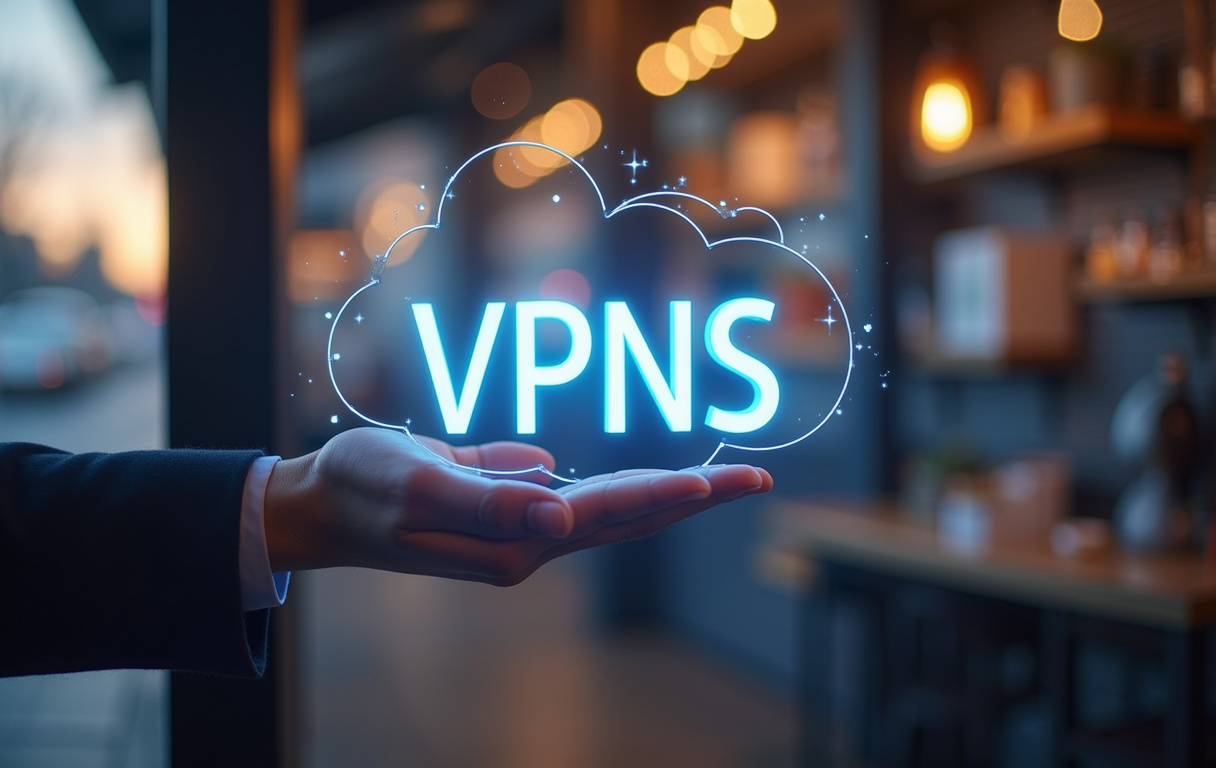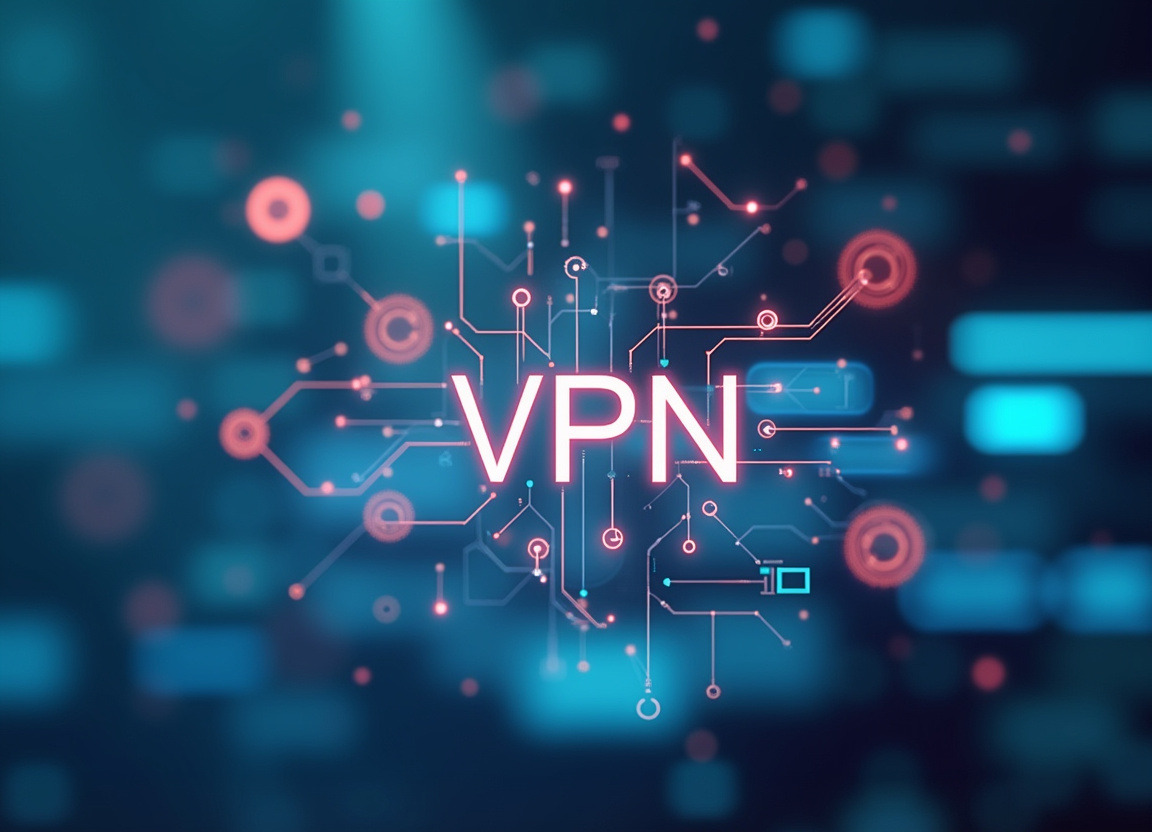VPNs for Independent Cafés: Securing Payment Systems

Table of Contents
The Imperative of VPNs: Protecting Café Networks in a Digital Age
In today's interconnected world, independent cafés are increasingly reliant on digital systems for everything from point-of-sale (POS) transactions to online ordering and customer loyalty programs. This reliance, however, opens up new avenues for cyberattacks, placing payment systems and sensitive customer data at risk. Protecting these assets is no longer a matter of simply installing antivirus software; it requires a comprehensive and proactive cybersecurity strategy.
This article explores the crucial role of Virtual Private Networks (VPNs) in securing the digital infrastructure of independent cafés, focusing on how they safeguard payment systems, ensure customer information protection, and enhance overall business reliability. A VPN provides a secure, encrypted connection between the café's devices and the internet, effectively creating a private tunnel that shields data from prying eyes. By masking the café's IP address and encrypting all internet traffic, a VPN makes it significantly more difficult for cybercriminals to intercept sensitive information such as credit card details, customer addresses, and personal preferences.
This enhanced security is particularly important when using public Wi-Fi networks, which are notoriously vulnerable to hacking. Without a VPN, data transmitted over public Wi-Fi is essentially unprotected, leaving it exposed to potential eavesdropping. The implications of a data breach for an independent café can be devastating, ranging from financial losses and legal liabilities to reputational damage and loss of customer trust.
In a competitive market, maintaining customer confidence is paramount, and a security breach can quickly erode that trust, leading to a decline in business. Therefore, implementing a robust VPN solution is not merely a technical upgrade; it's a strategic investment in the long-term success and sustainability of the café. Beyond security, a VPN can also offer other operational benefits.
For example, it can allow café owners to access geographically restricted content or services, such as streaming music or online subscriptions. It can also improve network performance by routing traffic through optimized servers, reducing latency and improving download speeds. Furthermore, a VPN can help protect against denial-of-service (DDoS) attacks, which can overwhelm a café's internet connection and disrupt its operations.
From a customer perspective, the use of a VPN by an independent café demonstrates a commitment to data privacy and security, fostering a sense of trust and confidence. In an era where data breaches are becoming increasingly common, customers are more discerning than ever about who they trust with their personal information. By openly communicating the use of a VPN and other security measures, cafés can differentiate themselves from competitors and attract customers who value data protection.
The implementation of a café VPN should be viewed as an integral part of a broader security strategy that includes other measures such as firewalls, intrusion detection systems, employee training, and regular security audits. A layered approach to security is essential to provide comprehensive protection against the diverse range of threats that cafés face. By taking a proactive and holistic approach to cybersecurity, independent cafés can minimize their risk of data breaches, protect their valuable assets, and maintain the trust of their customers.
The ultimate goal is to create a secure and reliable digital environment that allows the café to focus on providing exceptional customer experiences and growing its business without the constant worry of cybersecurity threats. Choosing the right VPN solution is critical, and it's important to consider factors such as encryption strength, server locations, bandwidth capacity, ease of use, and cost. The VPN should be compatible with the café's existing IT infrastructure and should be easy for staff to use and manage.
Regular updates and maintenance are also essential to ensure that the VPN remains effective against evolving threats.
Understanding VPN Functionality: A Shield Against Cyber Threats
The implementation of a café VPN is multifaceted, demanding careful consideration of the specific operational requirements of the independent café and the potential vulnerabilities present within its existing IT infrastructure. A crucial starting point involves conducting a comprehensive security audit to identify potential weaknesses in the café's network, payment systems, and data storage practices. This audit should assess the security of the POS systems, Wi-Fi networks, online ordering platforms, and any other systems that handle sensitive customer information or payment data.
Are the POS systems using the latest security patches? Is the Wi-Fi network password protected and encrypted? Are customer data stored securely and accessed only by authorized personnel?
These are just some of the questions that should be addressed during the security audit. Once the vulnerabilities have been identified, the next step is to select a VPN solution that adequately addresses these specific security concerns. Different VPN protocols offer varying levels of security and performance, and it's essential to choose one that aligns with the café's security needs and bandwidth requirements.
For example, protocols like OpenVPN and IKEv2/IPSec are generally considered to be more secure than PPTP, but they may require more processing power and configuration expertise. PPTP, while easier to set up, is often considered outdated and offers weaker security. The choice depends on the café's technical expertise and the level of security required.
The chosen VPN solution should also offer robust encryption capabilities, using strong encryption algorithms such as AES-256 to protect data in transit. AES-256 is widely regarded as one of the most secure encryption algorithms available, and it's recommended for protecting sensitive data. Additionally, it's important to ensure that the VPN provider has a strict no-logs policy, meaning that they do not store any records of user activity or browsing history.
This is crucial for protecting customer privacy and maintaining compliance with data protection regulations. A no-logs policy ensures that even if the VPN provider is subpoenaed, they won't have any data to hand over. The configuration of the VPN should be done carefully, following best practices for security and performance.
This includes configuring strong passwords, enabling multi-factor authentication, and regularly updating the VPN software to patch any security vulnerabilities. Multi-factor authentication adds an extra layer of security by requiring users to provide two or more forms of identification before accessing the VPN. This makes it much more difficult for hackers to gain unauthorized access, even if they manage to steal a password.
It's also important to configure the VPN to automatically connect whenever the café's devices are connected to the internet, ensuring that all traffic is protected at all times. This prevents accidental exposure of data when connecting to public Wi-Fi networks or other unsecured networks. Once the VPN has been implemented, it's essential to regularly monitor its performance and security.
This includes monitoring network traffic for any suspicious activity, regularly testing the VPN's security, and staying up-to-date on the latest security threats and vulnerabilities. Intrusion detection systems can be used to monitor network traffic for suspicious activity and alert administrators to potential security breaches. Regular penetration testing can also help identify vulnerabilities in the VPN configuration and network infrastructure.
Regular employee training is also crucial to ensure that staff members understand how to use the VPN correctly and are aware of the importance of security. This training should cover topics such as password security, phishing awareness, and best practices for handling sensitive customer information. Phishing attacks are a common way for hackers to steal login credentials and gain access to sensitive data.
By training employees to recognize and avoid phishing attacks, cafés can significantly reduce their risk of becoming victims. By taking these steps, independent cafés can ensure that their payment systems and customer information are adequately protected against cybersecurity threats, enabling them to operate with confidence and maintain the trust of their customers. The proactive approach to security, driven by the implementation of a well-configured and regularly maintained café VPN, provides a strong foundation for business reliability and sustainable growth.
Transaction security
Central to safeguarding an independent café's financial integrity and customer loyalty is the implementation of robust payment security measures, significantly augmented by the strategic deployment of a VPN for retail. becomes paramount when considering the various methods customers use to pay, be it through traditional card swipes, contactless payments, or online ordering systems. Each transaction point presents a potential vulnerability that cybercriminals can exploit.
A VPN acts as a secure conduit, encrypting all data transmitted between these points and the payment processor, thereby minimizing the risk of interception and fraud. This encryption is not merely a technical safeguard; it's a visible commitment to customers that their financial details are being handled with the utmost care. The impact of a data breach extends far beyond immediate financial losses; it can severely damage a café's reputation, erode customer trust, and lead to legal repercussions.
Therefore, investing in a comprehensive VPN solution tailored for retail environments is a proactive step towards mitigating these risks and ensuring . Furthermore, the Payment Card Industry Data Security Standard (PCI DSS) imposes strict requirements on businesses that handle credit card information. Compliance with PCI DSS is not optional; it's a legal obligation that can result in hefty fines and penalties for non-compliance.
A VPN can help cafés meet many of the PCI DSS requirements, specifically those related to secure data transmission and access control. For example, PCI DSS Requirement 4 mandates that businesses encrypt transmission of cardholder data across open, public networks. A VPN directly addresses this requirement by encrypting all data transmitted between the café's POS systems and the payment processor.
Similarly, PCI DSS Requirement 7 requires that access to cardholder data be restricted to individuals with a legitimate business need. A VPN can help enforce this requirement by controlling access to the café's network and ensuring that only authorized personnel can access sensitive data. Beyond PCI DSS compliance, a VPN also provides an additional layer of protection against emerging payment security threats such as skimming, phishing, and malware attacks.
Skimming involves the use of fraudulent devices to steal credit card information from unsuspecting customers. A VPN can help prevent skimming by encrypting the data transmitted between the POS terminal and the payment processor, making it more difficult for skimmers to intercept the data. Phishing attacks involve tricking employees into revealing sensitive information such as login credentials or payment card details.
A VPN can help protect against phishing attacks by encrypting all internet traffic, making it more difficult for hackers to intercept the data and impersonate legitimate websites or services. Malware attacks involve the use of malicious software to steal data or disrupt business operations. A VPN can help protect against malware attacks by preventing malware from communicating with Command and Control servers, and by providing an additional layer of security against drive-by downloads and other malware distribution methods.
By implementing a café VPN, independent cafés can significantly enhance their payment security posture, protect themselves against emerging threats, and maintain compliance with industry regulations. This proactive approach to payment security not only protects the café's financial interests but also fosters customer trust and loyalty.
customer information protection
Beyond securing financial transactions, a critical aspect of safeguarding an independent café lies in . Cafés often collect a wealth of customer data, including names, email addresses, phone numbers, and even purchase histories, especially through loyalty programs, online ordering platforms, and Wi-Fi registration. This data, while valuable for marketing and customer relationship management, becomes a significant liability if compromised.
A robust VPN plays a vital role in protecting this sensitive information from unauthorized access, both internal and external. The principle of extends beyond mere data encryption; it encompasses responsible data handling practices, adherence to privacy regulations, and a commitment to transparency with customers about how their data is being used. A VPN contributes to this broader framework by creating a secure environment for data storage, transmission, and processing.
When customers connect to a café's Wi-Fi, their data is vulnerable to interception unless protected by a VPN. By requiring customers to connect through a secure VPN connection (assuming the cafe provides this service and guidance), or ensuring the café's own internal network and systems transmitting the WiFi access information is secured by a VPN, cafés can mitigate this risk and safeguard the privacy of their customers' browsing activity. The VPN encrypts all data transmitted between the customer's device and the internet, making it unreadable to eavesdroppers.
Similarly, when customers provide their personal information through online forms or loyalty program registrations, a VPN ensures that this data is transmitted securely to the café's servers, preventing it from being intercepted by hackers. Internally, a VPN can also help protect customer information by limiting access to sensitive data to authorized personnel only. By creating a secure network environment and controlling access permissions, cafés can minimize the risk of internal data breaches.
For example, a VPN can be used to create separate network segments for different departments, ensuring that only employees who need access to customer information can access it. Furthermore, a VPN can help prevent employees from accidentally exposing customer information by encrypting all data transmitted over the café's internal network. This is particularly important when employees are using mobile devices or working remotely.
In addition to technical safeguards, it's also important for cafés to implement strong data handling policies and procedures. These policies should address issues such as data retention, data disposal, and data breach notification. Cafés should also provide regular training to employees on data security best practices and the importance of protecting customer information.
Compliance with data privacy regulations such as GDPR (General Data Protection Regulation) and CCPA (California Consumer Privacy Act) is also essential. These regulations impose strict requirements on businesses that collect and process personal data, and failure to comply can result in significant fines and penalties. A VPN can help cafés comply with these regulations by providing a secure and compliant environment for data processing.
By prioritizing customer information protection through the implementation of a VPN and other security measures, independent cafés can build trust with their customers, enhance their reputation, and maintain compliance with data privacy regulations. This proactive approach to data security is essential for long-term success and sustainability in today's data-driven economy. By implementing a VPN, data is protected even if transferred to a cloud based server for accounting purposes, reporting revenue totals, CRM database information and more.
VPN for retail
Implementing a environments like independent cafés offers a multifaceted approach to security, ultimately enhancing business reliability and fostering a secure environment for both the café and its customers. The benefits extend beyond mere data encryption, encompassing improved network performance, enhanced compliance, and increased customer trust. A reliable VPN can significantly improve network performance by optimizing data routing and reducing latency.
This is particularly important for cafés that rely on online ordering platforms or streaming services, as it ensures a smooth and uninterrupted experience for customers. A VPN can also help prevent bandwidth throttling by ISPs (Internet Service Providers), which can slow down internet speeds during peak hours. Furthermore, a VPN can provide access to geographically restricted content or services, allowing cafés to offer a wider range of entertainment options to their customers.
From a compliance perspective, a VPN can help cafés meet a variety of regulatory requirements, including PCI DSS and GDPR. By encrypting data in transit and controlling access to sensitive information, a VPN demonstrates a commitment to data security and privacy, which is essential for compliance. A VPN can also help cafés comply with export control regulations by ensuring that data is not transmitted to unauthorized countries.
The increased customer trust resulting from a visible commitment to security is invaluable. In today's digital age, customers are increasingly concerned about data privacy and security, and they are more likely to patronize businesses that take these concerns seriously. By openly communicating the use of a VPN and other security measures, cafés can differentiate themselves from competitors and attract customers who value data protection.
This transparency can also lead to increased customer loyalty and positive word-of-mouth marketing. The choice of a VPN for a retail environment necessitates careful consideration of several factors. Scalability is crucial; the VPN solution should be able to accommodate the café's current needs while also being able to scale up as the business grows.
Bandwidth is another important consideration; the VPN should provide sufficient bandwidth to support all of the café's online activities, including POS transactions, online ordering, and customer Wi-Fi. Ease of use is also essential; the VPN should be easy to set up, configure, and manage, even for non-technical staff. Cost-effectiveness is also a key factor, as independent cafés often operate on tight budgets.
The initial investment in a VPN solution should be weighed against the potential costs of a data breach, including financial losses, reputational damage, and legal liabilities. Ongoing maintenance and support are also important considerations; the VPN provider should offer reliable technical support and regular updates to ensure that the VPN remains secure and effective. Ultimately, the implementation of a is an investment in the long-term success and sustainability of the business.
By prioritizing security and reliability, independent cafés can create a safe and secure environment for both themselves and their customers, fostering trust, loyalty, and growth. Regular security audits, penetration testing, and employee training should complement the deployment of a VPN to establish a comprehensive security posture. Selecting the right VPN requires careful planning and research, considering the specific needs and vulnerabilities of the independent café.
By making an informed decision and implementing a robust VPN solution, café owners can protect their business from the growing threat of cyberattacks and ensure the confidentiality, integrity, and availability of their valuable data. The long-term benefits far outweigh the initial costs, making a VPN an essential component of any independent café's cybersecurity strategy.
Stay Updated
Get the latest VPN news, tips, and exclusive deals to your inbox.
